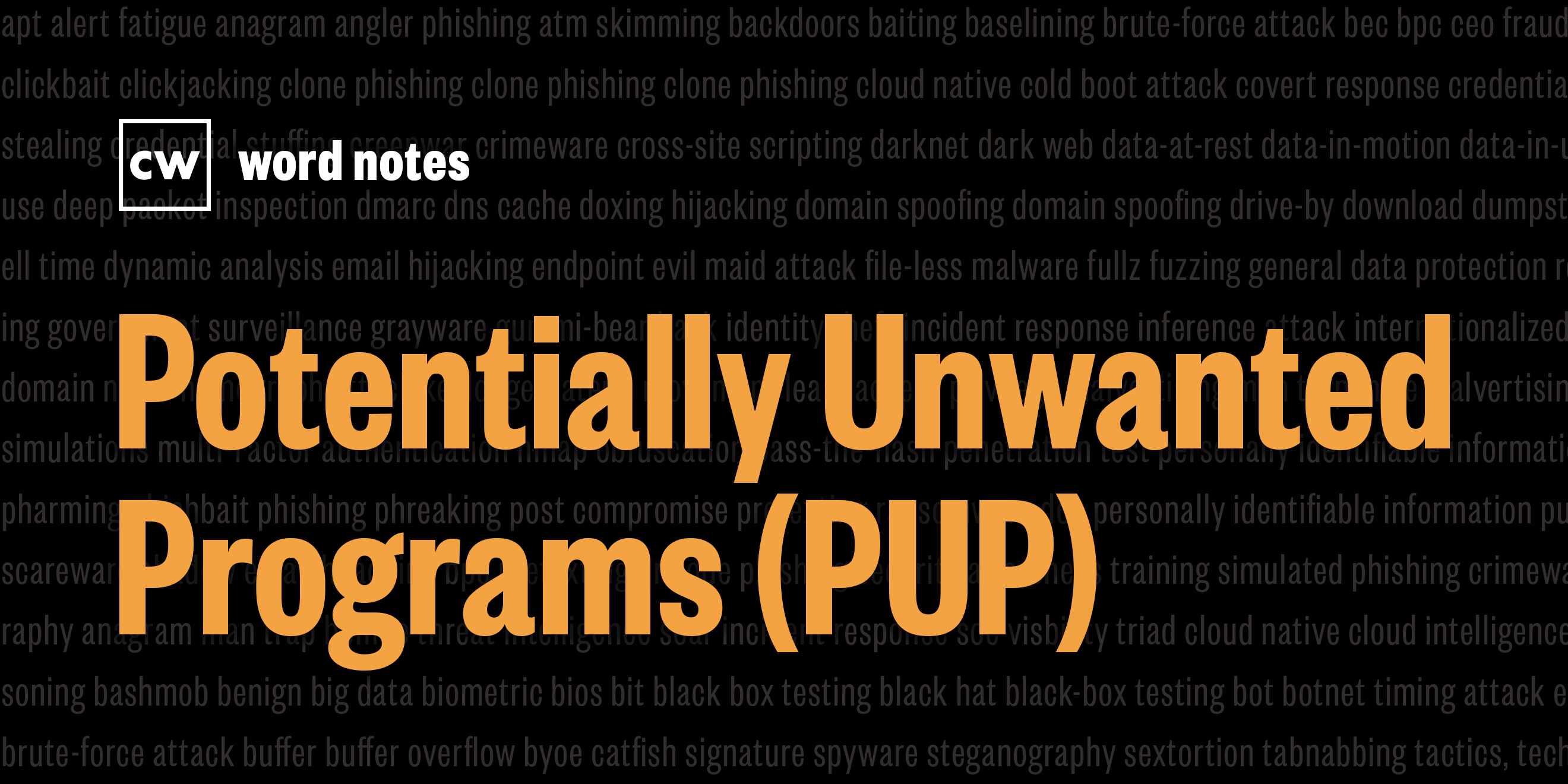
PUP (noun)
Rick Howard: The word is: PUP
Rick Howard: Spelled: P for potentially, U for unwanted, and P for programs.
Rick Howard: Definition: A software program installed unintentionally by a user that typically performs tasks not asked for by the installer.
Rick Howard: Example sentence: When Kevin installed that cool new game, he didn't know that he was also installing a PUP.
Rick Howard: Origin and context: PUP's aren't inherently malicious, but may have unwanted or undesirable effects, which could include adware, browser extensions and toolbars, and software that collects information. PUP's are frequently bundled into the installation process of a legitimate software program that the user intended to download. Malwarebytes explains that PUP's are distinguished from malware because the user technically consents to downloading them, in the same sense that someone can agree to a privacy policy without actually reading it. However, PUP's can perform some of the same actions as malware youTuber Britec notes that Microsoft now blocks low reputation applications associated with PUP's by default in Windows 10 and Windows 11.
Rick Howard: Nerd reference: Sydney Butler is a writer and YouTube broadcaster for the Online Tech Tips magazine. He had this to say about potentially unwanted programs.
Sydney Butler: Despite its cute name, having a PUP on your computer isn't fun. Potentially unwanted programs also known as PUA's or potentially unwanted apps, tred a fine line between being an annoyance and straight up malware. But anything installed on your computer without your express knowledge is a problem.
Sydney Butler: In general, a PUP is any piece of software that gets installed on your computer without your knowledge that does something you don't know about. Even if you did install knowingly and generally makes changes or takes an action, you wouldn't want. This makes pups different from malicious software such as Trojans, viruses, or ransomware.
Sydney Butler: Typically, the installation process for the other software will use an opt-in approach where the option to install the PUP is already ticked on the installation wizard. Sneaky, sneaky. This relies on users simply clicking next, next, next, until the installation completes instead of reading the fine print. Next thing you know, there's a brand new PUP on your system, making your life miserable in some annoying way.
Rick Howard: Word Notes is written by Tim Nodar, executive produced by Peter Kilpe, and edited by John Petrik and me, Rick Howard. The mix, sound design, and original music have all been crafted by the ridiculously talented Elliott Peltzman. Thanks for listen.

